Nolen’s stories reveal how the disease works, how it spreads, and how it kills; how it is inextricably tied to conflict, famine, failure of leadership, and the collapse of states, and to the cultures it has ravaged; how treatment works, and how people who can’t get it fight to stay alive with courage, dignity, and hope against huge odds. Writing with power, understanding, and simplicity, Stephanie Nolen makes us listen, allows us to understand, and inspires us to care. Timely, transformative, and thoroughly accessible, 28 is essential reading for our times.
28: Stories of AIDS in Africa
KShs 1,800.00
Nolen’s stories reveal how the disease works, how it spreads, and how it kills; how it is inextricably tied to conflict, famine, failure of leadership, and the collapse of states, and to the cultures it has ravaged; how treatment works, and how people who can’t get it fight to stay alive with courage, dignity, and hope against huge odds. Writing with power, understanding, and simplicity, Stephanie Nolen makes us listen, allows us to understand, and inspires us to care. Timely, transformative, and thoroughly accessible, 28 is essential reading for our times.
1 in stock
Related products
-
Medical Terminology: A Short Course, 9th Edition
KShs 11,100.00Build a working medical vocabulary quickly with Chabner’s Medical Terminology: A Short Course, 9th Edition! Omitting time-consuming, nonessential information, this text helps you master the basics of medical vocabulary — including the most frequently encountered suffixes, prefixes, and word roots. A text/workbook format lets you practice and interact with medical terminology on almost every page through exercises, labeling, and pronunciations. Case studies and real-world vignettes demonstrate how medical terms are used in practice. With all this plus medical animations, word games, and flash cards on the Evolve website, you’ll be amazed at how easily medical terminology becomes part of your vocabulary.
-
Muir’s Textbook of Pathology: Sixteenth Edition International Student Edition
KShs 7,000.00This classic text sets a standard in this subject by outlining the scientific aspects that underlie pathological processes, relating these to specific organ systems and placing all in a context that the student of medicine or pathology can appreciate, understand and enjoy. The clearly defined and easy-to-follow structure, enhanced by numerous photographs and explanatory line diagrams, focuses on core material without neglecting novel concepts and up-to-the minute detail. A one-stop-shop in pathology, it reflects fully the integration of pathology into clinical teaching whether system or problem-based, and will take the student right through medical school and beyond to postgraduate training.
-
Applied Theories in Occupational Therapy 2nd Edition by Roseanna Tufano (Author), Marilyn B. Cole (Author)
KShs 11,000.00Applied Theories in Occupational Therapy: A Practical Approach, Second Edition provides a system-based, comprehensive overview of the theories, models, and frames of reference that influence occupational therapy around the world. Esteemed authors Marilyn B. Cole and Roseanna Tufano have updated their foundational text with an evidence-based focus derived from their experiences of more than 30 years teaching theoretical content to students.
Applied Theories in Occupational Therapy: A Practical Approach, Second Edition offers practical templates to help readers learn the key constructs of each theory and assimilate knowledge based on Mosey’s organizational structure. Each theory-based chapter is designed for ease in gathering content knowledge and comparing theories in a distinctive manner. The book includes:
- Summaries of the current trends found in practice, along with external influential models of health and wellness impacting populations of concern
- Exploration of some of the most common occupation-based models around the world. Each model’s holistic conceptual nature is described, including theoretical assumptions and practice guidelines for evaluation and intervention
- Reviews of common frames of reference found in evidence-based practice, which address the secondary and tertiary needs of common populations
In this Edition, learning activities and case-based analyses strengthen the application of theory into current practice contexts. Practical guidelines assist the reader in formulating an evaluation process and determining the relevant intervention strategies that promote occupational participation, engagement, and functioning across the lifespan and the continuum of health.
-
Mims’ Medical Microbiology and Immunology, International Edition, 7th Edition
KShs 5,642.00MIMS’ Medical Microbiology and Immunology is loved internationally for its thorough yet easy-to-follow coverage of microbiology, infectious diseases, and immunology as a dynamic interplay between microbes and host. Covering the fundamentals of these closely linked disciplines, MIMS’ takes a systems approach to elaborate on epidemiology, clinical presentation, pathogenesis, and diagnostic approaches, as well as treatment and infection control considerations, supplemented by case-based examples. Complex scientific and clinical concepts are explained clearly and simply with the help of illustrations and a range of accompanying online content. Students will come away with a deep understanding of topics and processes, and will return to this book for reference time and again.Key Features- Clear writing and easy-to-understand explanations – perfect for students learning to grasp the fundamentals of both microbiology and immunology
- User-friendly format with colour coding, key concept boxes, and dynamic illustrations for easy navigation
- Organised by body system – goes beyond the ‘bug parade’ to help you understand clinical context
Author InformationBy Richard Goering, BA MSc PhD, Professor and Chair, Department of Medical Microbiology and Immunology, Creighton University School of Medicine, Omaha, Nebraska.; Hazel M. Dockrell, BA (Mod) PhD, Professor of Immunology, Faculty of Infectious and Tropical Diseases, London School of Hygiene and Tropical Medicine, London, UK; Mark Zuckerman, BSc(Hons), MBBS, MRCP, MSc, FRCPath, Consultant Virologist and Honorary Senior Lecturer, South London Specialist Virology Centre, King’s College Hospital NHS Foundation Trust, King’s College London School of Medicine, London, UK; Peter L. Chiodini, BSc, MBBS, PhD, FRCP, FRCPath, FFTM, RCPS(Glas), Consultant Parasitologist, Hospital for Tropical Diseases, London and Honorary Professor, London School of Hygiene and Tropical Medicine, London, UK -
Handbook of Health Research Methods: Investigation, Measurement and Analysis 1st Edition
KShs 7,278.00This handbook helps researchers to plan, carry out, and analyse health research, and evaluate the quality of research studies. The book takes a multidisciplinary approach to enable researchers from different disciplines to work side-by-side in the investigation of population health, the evaluation of health care, and in health care delivery.
Handbook of Health Research Methods is an essential tool for researchers and postgraduate students taking masters courses, or undertaking doctoral programmes, in health services evaluation, health sciences, health management, public health, nursing, sociology, socio-biology, medicine and epidemiology. However, the book also appeals to health professionals who wish to broaden their knowledge of research methods in order to make effective policy and practice decisions.
Contributors: Joy Adamson, Geraldine Barrett, Jane P. Biddulph, Ann Bowling, Sara Brookes, Jackie Brown, Simon Carter, Michel P. Coleman, Paul Cullinan, George Davey Smith, Paul Dieppe, Jenny Donovan, Craig Duncan, Shah Ebrahim, Vikki Entwistle, Clare Harries, Lesley Henderson, Kelvyn Jones, Olga Kostopoulou, Sarah J. Lewis, Richard Martin, Martin McKee, Graham Moon, Ellen Nolte, Alan O’Rourke, Ann Oakley, Tim Peters, Tina Ramkalawan, Caroline Sanders, Mary Shaw, Andrew Steptoe, Jonathan Sterne, Anne Stiggelbout, S.V. Subramanian, Kate Tilling, Liz Twigg, Suzanne Wait.
-
Myles Textbook for Midwives, International Edition, 17th Edition
KShs 5,642.00Written by midwives for midwives, Myles Textbook for Midwives has been the seminal textbook of midwifery for over 60 years. It offers comprehensive coverage of topics fundamental to 21st midwifery practice. Co-edited for the second time, by internationally renowned midwife educationalists, Professor Jayne E Marshall and Maureen D Raynor from the United Kingdom with a team of contributors from across the midwifery community it retains its clear, accessible writing style. Most chapters provide useful case studies, websites of key organisations and charities for individuals to access further information. Reflective questions at the end of each chapter as well as annotated further reading aid reflective learning and stimulate discussions relating to continuing professional development.
Key Features-
- The book covers key frameworks that govern midwifery practice, exploring ethical and legal frameworks that are essential to every accountable, autonomous, professional midwife.
-
- Includes employer-led models of supervision, vital elements of leadership and clinical governance that supports the provision of high quality maternity services and standards of midwifery practice.
-
- The concept of resilience is introduced for the reader to contemplate their personal contribution in creating an environment that is conducive to protecting the wellbeing of themselves and colleagues within the workplace.
-
- The text covers the UN 2030 Agenda for Sustainable Development, highlighting the importance of midwives as global citizens with common goals, and together they form a strong global community prepared to challenge social inequalities and take action to help end extreme poverty.
-
- Covers designing and implementing high quality midwifery care using evidence, policy and models of care. Highlights why a holistic and evidence-informed approach is necessary to achieve effective care for all. Working examples will help the reader to think critically about their own practice.
-
- For this edition several new chapters are introduced covering concealed pregnancy, fear of childbirth (tocophobia), care of the acutely unwell woman and end of life issues including rights of the fetus/neonate and ethical considerations.
Author InformationEdited by Jayne E. Marshall, FRCM, PFHEA, PhD, MA, PGCEA, ADM, RM, RN, Foundation Professor of Midwifery and NMC Lead Midwife for Education, School of Allied Health Professions, College of Life Sciences, George Davies Centre, University of Leicester, UK and Maureen D. Raynor, MA PGCEA ADM RMN RN RM, Senior Lecturer (Midwifery), De Montfort University, Faculty of Health and Life Sciences, School of Nursing and Midwifery, Leicester, UK -
-
An Introduction to Forensic Genetics, 2nd Edition
KShs 16,198.00This is a completely revised edition of a comprehensive and popular introduction to the fast moving area of Forensic Genetics. The text begins with key concepts needed to fully appreciate the subject and moves on to examine the latest developments in the field. Now illustrated in full colour throughout, this accessible textbook includes numerous references to relevant casework. With information on the full process of DNA evidence from collection at the scene of a crime to presentation in a legal context this book provides a complete overview of the field.
Key Features:
- Greater in-depth coverage of kinship problems now covered in two separate chapters: one dealing with relationships between living individuals and the other covering identification of human remains.
- New chapter on non-human forensic genetics, including identification of bacteria and viruses, animals and plants.
-
Myles Textbook for Midwives African Edition, 3rd Edition
KShs 4,914.00The edition of this seminal textbook, Myles Textbook for Midwives, has been extensively revised and restructured to ensure that it reflects current midwifery practice, with an increased focus on topics that are fundamental to midwifery practice today. The book comes with Elsevier EVOLVE ancillaries – an online learning package which consists of 500 self-assessment questions and answers and a fully downloadable image bank.
- Designed to enable midwifery practitioners to provide safe and competent care, which is tailored to the patient’s individual needs
- Extensively illustrated to assist visual learning with additional ‘pull out’ textboxes to highlight key information
- Streamlined chapters with similar themes and approach help consolidate learning
- Reflects all modern midwifery curricula by presenting a strong emphasis on evidenced-based practice and the use of technology
- Over 500 on-line multiple-choice questions to enable readers to test their knowledge
- Offers a full image bank of downloadable illustrations to assist with personal projects and/or further learning
- References, Further Reading and Useful Websites promote further learning
- Glossary of Terms and Acronyms provide simple definitions of more complex terminologies
- Full colour illustrations now used throughout the book, in response to student feedback
- Contains many new chapters, some of which are authored by members of the multi-professional team
- Up-to-date guidance on professional regulation, midwifery supervision, legal and ethical issues, risk management and clinical governance
- Recognition that midwives increasingly care for women with complex health needs, in a multicultural society
- Examination of the dilemmas involved in caring for women with a raised body mass index
- Chapter on optimising care of the perineum for women with perineal trauma, including those who have experienced female genital mutilation
- Guidance to support the trend for midwives to undertake the neonatal physical examination of the healthy term infant
- Additional coverage of basic neonatal resuscitation

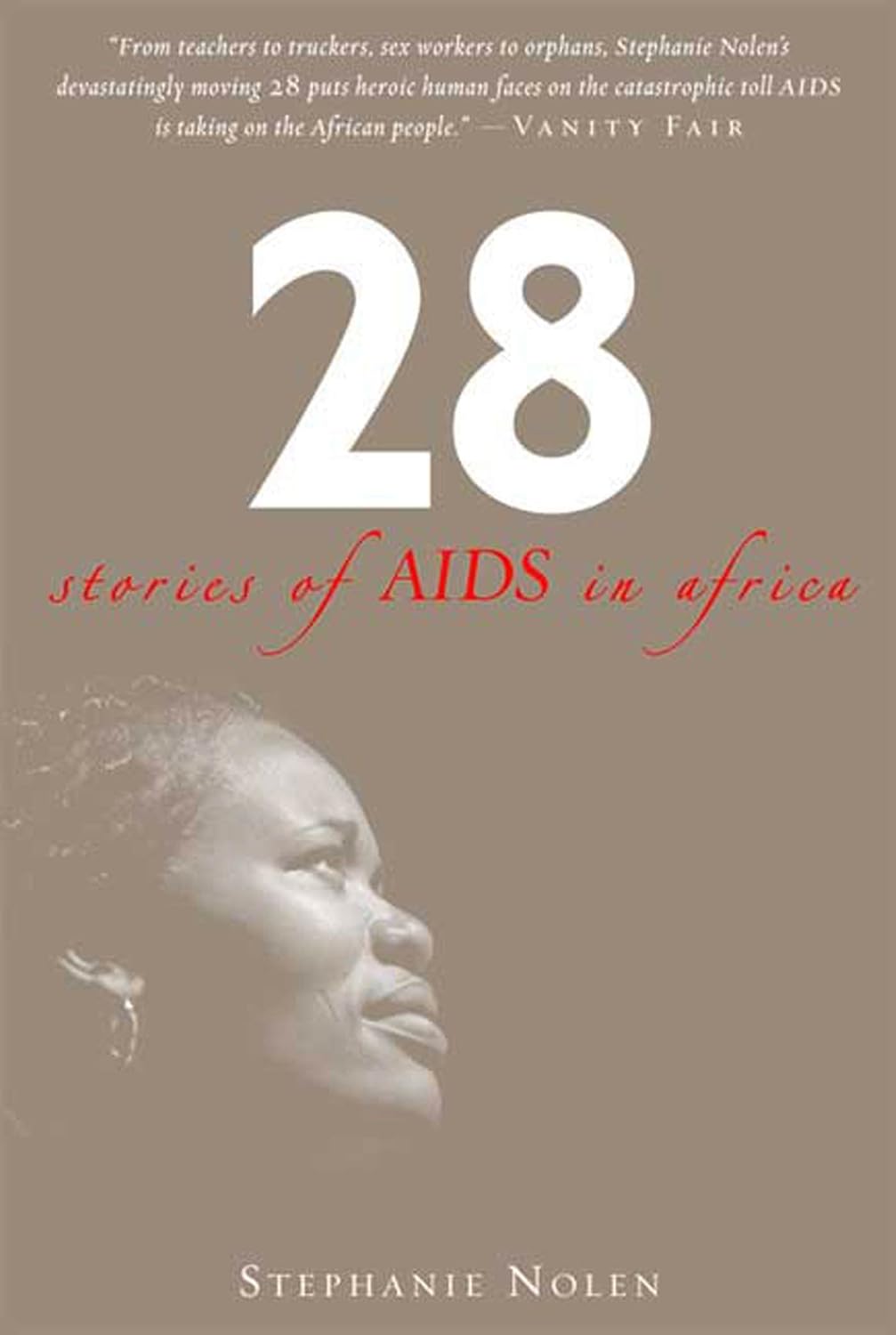
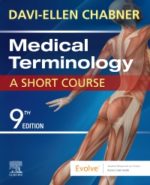
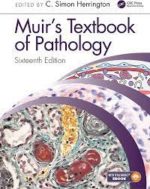
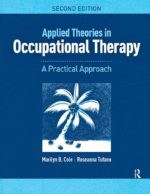
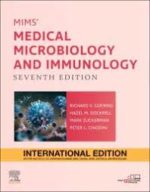
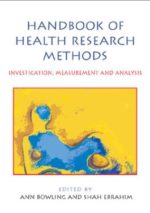
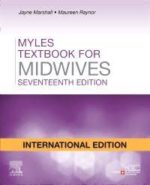

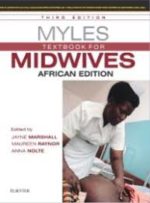
Be the first to review “28: Stories of AIDS in Africa”